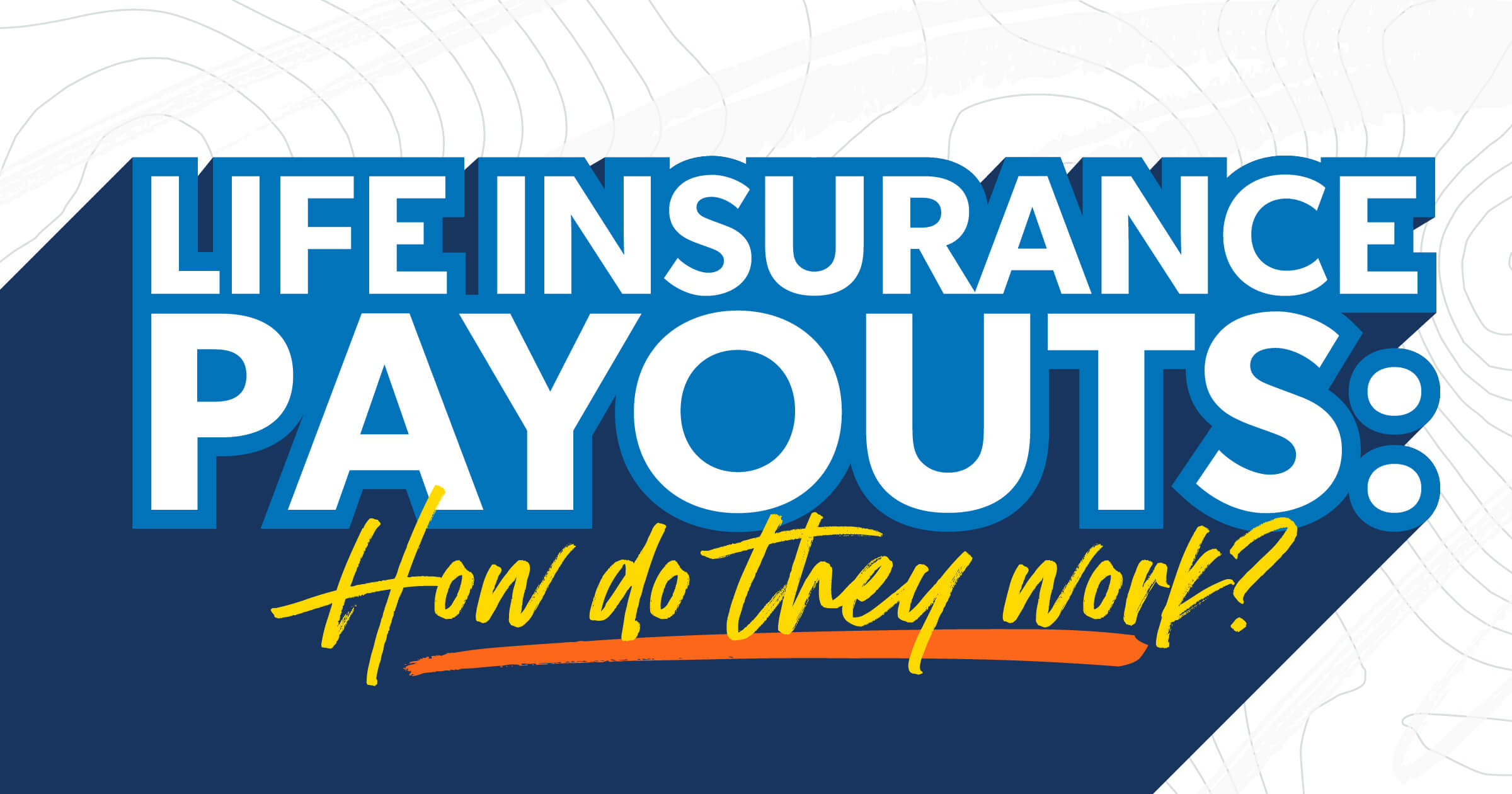

Finance
What Homeshare Insurance Covers
Published: November 20, 2023
Protect your financial investment with homeshare insurance. Find out what coverage options are available and ensure your financial security today.
(Many of the links in this article redirect to a specific reviewed product. Your purchase of these products through affiliate links helps to generate commission for LiveWell, at no extra cost. Learn more)
Table of Contents
- Introduction
- Understanding Homeshare Insurance
- Coverage for Property Damage
- Coverage for Personal Liability
- Coverage for Theft and Burglary
- Coverage for Accidental Injury
- Coverage for Loss of Rental Income
- Coverage for Legal Expenses
- Coverage for Temporary Accommodation
- Coverage for Additional Living Expenses
- Conclusion
Introduction
When it comes to renting out your home or participating in home-sharing platforms like Airbnb, it is important to be aware of the potential risks involved. While homesharing can be a great way to earn extra income and meet new people, it also exposes you to various liabilities. This is where homeshare insurance comes into play. Homeshare insurance is specifically designed to protect homeowners who engage in home-sharing activities.
In this article, we will delve into the details of homeshare insurance and explore the various aspects it covers. Understanding the scope of this insurance policy is crucial for homeowners to ensure they are adequately protected in the event of unexpected mishaps or accidents.
Homeshare insurance typically provides coverage for property damage, personal liability, theft and burglary, accidental injury, loss of rental income, legal expenses, temporary accommodation, and additional living expenses. Let’s dive into each of these coverage areas to gain a comprehensive understanding of what homeshare insurance entails.
Understanding Homeshare Insurance
Homeshare insurance is a specialized type of insurance policy that is specifically designed to protect homeowners who engage in home-sharing activities. Traditional homeowners insurance policies may not provide coverage for incidents that occur while renting out your home or participating in home-sharing platforms. Homeshare insurance fills this gap and provides the necessary coverage to protect homeowners and their properties.
Before diving into the specific coverage areas, it is important to understand the key features of homeshare insurance. These policies typically provide coverage for both short-term and long-term rental activities, ensuring that homeowners are protected regardless of the length of their rental agreements. Homeshare insurance is often offered as an endorsement or add-on to a standard homeowners insurance policy, allowing homeowners to customize their coverage to meet their unique needs.
Homeshare insurance policies also consider various factors such as the number of rental days per year, rental income, and the type of homesharing platform being used. This ensures that homeowners receive adequate coverage based on their specific rental activities. It is important to note that different insurance companies may have different coverage options and limitations, so homeowners should carefully review their policy to understand the specific details of their coverage.
By obtaining homeshare insurance, homeowners can have peace of mind knowing that they are protected against potential financial losses resulting from property damage, liability claims, theft, and other unforeseen circumstances that may occur during the rental period.
Coverage for Property Damage
One of the primary concerns when renting out your home is the risk of property damage. Homeshare insurance provides coverage for property damage caused by guests or other covered incidents. This coverage typically includes damage to the structure of the home, as well as any personal belongings or furnishings within the property.
If a guest accidentally breaks a window, damages a piece of furniture, or causes any other form of property damage, homeshare insurance can help cover the cost of repairs or replacement. This coverage is essential for homeowners to protect their investment and ensure that they are not left with significant financial burdens.
It’s important to note that homeshare insurance coverage for property damage may have certain limitations and exclusions. For example, intentional acts or damages caused by pets may not be covered. Additionally, some policies may have restrictions on high-value items, such as jewelry or artwork. Homeowners should carefully review their policy to understand the specific limitations and exclusions when it comes to property damage coverage.
In the event of property damage, homeowners should document the damage and notify their insurance provider promptly. They may be required to provide photographs, receipts, or other evidence of the damage and its value. The insurance company will then work with the homeowner to assess the extent of the damage and facilitate the repair or replacement process.
By having coverage for property damage, homeowners can have peace of mind knowing that they are protected if unexpected accidents or incidents occur during the rental period.
Coverage for Personal Liability
Personal liability coverage is another crucial aspect of homeshare insurance. When renting out your home, there is always a risk of accidents or injuries occurring on your property. Personal liability coverage helps protect homeowners in the event that they are held legally responsible for bodily injury or property damage to third parties.
If a guest or visitor is injured while staying at your home or encounters property damage due to your negligence, personal liability coverage can help cover the associated medical expenses, legal fees, and potential settlement costs. This coverage is designed to protect homeowners from financial liability and potential lawsuits that may arise from such incidents.
It is important to note that personal liability coverage typically extends beyond just the rental period. It can also provide coverage for incidents that occur outside of the rental period but are related to the home-sharing activities. However, it is crucial for homeowners to review their policy to understand the specific details and coverage limits.
When it comes to personal liability claims, homeowners should immediately notify their insurance provider and provide them with all relevant information regarding the incident. This includes details about the injured party, the nature of the incident, and any medical documentation or evidence that may be available. The insurance company will then work with the homeowner and their legal representation to handle the claim, negotiate settlements, or defend against potential lawsuits.
Having personal liability coverage is essential for homeowners engaging in home-sharing activities as it provides financial protection and peace of mind in case of unforeseen accidents or injuries that occur on their property.
Coverage for Theft and Burglary
When it comes to renting out your home or participating in home-sharing platforms, there is always a risk of theft or burglary. Fortunately, homeshare insurance often includes coverage for such incidents, providing homeowners with financial protection in the event of stolen or damaged property.
If your guest’s belongings go missing or are damaged during their stay, homeshare insurance can help cover the cost of replacing or repairing the stolen or damaged items. This coverage extends not only to your guest’s personal belongings but also to your own possessions that may be affected by theft or burglary.
It is important to note that there may be certain limitations and exclusions when it comes to theft and burglary coverage. For example, coverage may not be provided for items left unattended or stolen due to negligence on the part of the homeowner or guest. Homeowners should thoroughly review their policy to understand the specific details and limitations related to this coverage.
In the event of theft or burglary, homeowners should document the incident by filing a police report and contacting their insurance provider. They may be required to provide proof of ownership for the stolen or damaged items, as well as any other necessary documentation. The insurance company will then guide the homeowner through the claims process and assist with the reimbursement or replacement of the stolen or damaged items.
Having coverage for theft and burglary provides homeowners with peace of mind, knowing that they are protected against potential financial losses resulting from these unfortunate incidents that can occur during the home-sharing period.
Coverage for Accidental Injury
Accidental injuries can occur at any time, even during a guest’s stay in your home. Homeshare insurance typically includes coverage for accidental injuries that may happen to your guests while they are renting your property. This coverage is designed to protect homeowners from potential legal and financial liabilities resulting from such incidents.
If a guest sustains an accidental injury while staying at your home, homeshare insurance can provide coverage for their medical expenses, rehabilitation costs, and any potential legal fees associated with the injury. This coverage applies to injuries that occur within the property as well as those that may happen outside, but are directly related to the home-sharing activities.
It is important to note that coverage for accidental injury is typically limited to injuries that are not intentionally caused by the homeowner or result from the guest’s own negligence. Homeowners should carefully review their policy to understand the specific details and limitations of this coverage.
In the event of an accidental injury, homeowners should promptly notify their insurance provider and provide them with all relevant information regarding the incident. This includes details about the injured party, the nature of the injury, and any medical documentation or evidence available. The insurance company will then work with the homeowner and their legal representation to handle the claim and provide assistance throughout the process.
Having coverage for accidental injury is essential for homeowners engaging in home-sharing activities, as it provides financial protection and peace of mind in case of unforeseen accidents that may occur to their guests during their stay.
Coverage for Loss of Rental Income
A key concern for homeowners engaged in home-sharing activities is the potential loss of rental income due to unforeseen circumstances. Homeshare insurance often includes coverage for loss of rental income, providing financial protection in the event that your property becomes uninhabitable or unavailable for rent.
If your home sustains damages that render it uninhabitable, such as extensive property damage from a fire or a natural disaster, homeshare insurance can help compensate for the income you would have earned from renting out your property during the period of unavailability. This coverage is typically calculated based on the rental income you would have received during the affected period.
It is essential to review the specific terms and conditions of your homeshare insurance policy to understand the coverage limits and requirements for filing a claim for loss of rental income. Some policies may have waiting periods before coverage begins or limitations on the length of time during which you can claim the loss of rental income.
In the event of a covered incident that leads to the loss of rental income, homeowners should promptly notify their insurance provider and provide documentation supporting the loss. This may include rental agreements, financial records, and any relevant information on the cause of the loss. The insurance company will then work with the homeowner to assess the claim and provide the appropriate compensation.
Having coverage for loss of rental income is crucial for homeowners engaged in home-sharing activities, as it helps protect their financial stability in case their property becomes temporarily uninhabitable or unavailable for rent.
Coverage for Legal Expenses
Legal disputes can arise unexpectedly, and as a homeowner engaged in home-sharing activities, it’s essential to have protection against potential legal expenses. Homeshare insurance often includes coverage for legal expenses, helping homeowners navigate legal challenges that may result from renting out their property.
If a legal dispute arises related to your home-sharing activities, such as a guest filing a lawsuit against you for bodily injury or property damage, homeshare insurance can help cover the costs associated with legal defense. This coverage typically includes attorney fees, court costs, and other legal expenses incurred during the resolution of the dispute.
It’s important to note that the coverage for legal expenses might have certain limitations and exclusions. For example, intentional acts or legal disputes unrelated to your home-sharing activities may not be covered. Homeowners should carefully review their policy to understand the specific details and restrictions related to legal expense coverage.
In the event of a legal dispute, homeowners should notify their insurance provider promptly and provide them with all relevant information regarding the lawsuit or claim. This includes any legal documentation, correspondence, or evidence related to the dispute. The insurance company will then work with the homeowner and their legal representation to handle the claim, provide legal advice, and cover the necessary expenses.
Having coverage for legal expenses provides homeowners with peace of mind, knowing that they have the financial protection and support to navigate potential legal challenges that may arise from their home-sharing activities.
Coverage for Temporary Accommodation
When unforeseen circumstances make your home uninhabitable, such as extensive damages from a fire or a natural disaster, finding temporary accommodation for yourself and your guests becomes a necessity. Homeshare insurance often includes coverage for temporary accommodation expenses, ensuring that homeowners and their guests have a safe place to stay while their property is being repaired or replaced.
If you are unable to rent out your home due to covered damages, homeshare insurance can help cover the cost of temporary accommodation for you and your guests. This coverage typically includes expenses for hotel stays, rental accommodations, or alternative housing arrangements, ensuring that you and your guests are not left without a place to stay during the recovery period.
It’s important to review the specific terms and conditions of your homeshare insurance policy to understand the coverage limits and requirements for filing a claim for temporary accommodation expenses. Some policies may have restrictions on the duration or maximum reimbursement amount for temporary accommodation.
In the event of covered damages that render your home uninhabitable, homeowners should promptly notify their insurance provider and provide documentation supporting the need for temporary accommodation. This may include repair estimates, photographs of the damages, and any other relevant information requested by the insurance company. They will then work with you to assess the claim and provide appropriate compensation for the incurred expenses.
Having coverage for temporary accommodation provides homeowners with peace of mind, knowing that they have support in finding a safe and comfortable place to stay while their home is being repaired or replaced.
Coverage for Additional Living Expenses
When your home becomes temporarily uninhabitable due to covered damages, you may incur additional living expenses beyond just temporary accommodation. Homeshare insurance often includes coverage for these additional living expenses, providing financial support for the costs you may incur during the recovery period.
Additional living expenses coverage typically includes expenses such as meals, transportation, and other necessary costs that exceed your typical daily living expenses. For example, if you need to eat out more frequently due to the unavailability of your kitchen or incur transportation expenses to commute to work from your temporary accommodation, homeshare insurance can help cover these additional costs.
It is important to carefully review your homeshare insurance policy to understand the specific coverage limits and requirements for filing a claim for additional living expenses. Some policies may have restrictions on the duration or maximum reimbursement amount for these expenses.
In the event of covered damages that render your home temporarily uninhabitable, homeowners should notify their insurance provider promptly and provide documentation supporting the additional living expenses incurred. This may include receipts, invoices, or other proof of the expenses. The insurance company will then work with you to assess the claim and provide appropriate compensation for the incurred expenses.
Having coverage for additional living expenses is crucial, as it helps homeowners maintain their normal standard of living during the recovery period and alleviates the financial burdens that may arise from unexpected damages to their home.
Conclusion
Homeshare insurance is a valuable and essential protection for homeowners engaged in home-sharing activities. It provides coverage for a range of potential risks and liabilities, ensuring that homeowners are financially protected in the event of property damage, personal liability claims, theft and burglary, accidental injury, loss of rental income, legal expenses, and additional living expenses.
By investing in homeshare insurance, homeowners can have peace of mind knowing that they are adequately protected against unforeseen incidents and their associated costs. It allows homeowners to enjoy the benefits of home-sharing platforms and renting out their properties without the constant worry of potential financial losses.
It is important for homeowners to carefully review their insurance policy to understand the specific coverage limits, exclusions, and requirements for filing claims. Each insurance provider may offer different options and variations of coverage, so it is essential to choose a policy that suits the unique needs of your home-sharing activities.
In summary, homeshare insurance is a valuable asset for homeowners, providing them with the necessary protection and peace of mind when renting out their homes. By being aware of the coverage areas such as property damage, personal liability, theft and burglary, accidental injury, loss of rental income, legal expenses, temporary accommodation, and additional living expenses, homeowners can confidently engage in home-sharing activities while mitigating potential financial risks.














